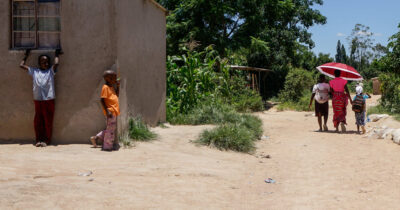On June 18, 2024, Femena, a Channel grantee, spotlighted its research and new report titled “Silent No More: WHRDs in SWANA Speak Out About Sexual Violence by Security Forces at its event called Untold Stories of Resistance. The report highlights the sexual violence Women Human Rights Defenders (WHRDs) experience by security forces in South West Asia and North Africa (SWANA). The event featured WHRDs from Afghanistan, Bahrain, Egypt, and Iran who discussed their personal and other WHRDs experiences with sexual harassment and violence.
The report is based on research Femena conducted in Afghanistan, Bahrain, Egypt, Iran, Palestine, Sudan, Syria, Saudi Arabia, UAE and Yemen. The report documents various instances of sexual harassment and violence that WHRDs encounter and emphasizes the “health and psychological impact of these abuses on them.” The research relies on twenty-one interviews with WHRDs who have “experienced some form of sexual harassment, abuse or violence by security or prison officials during interrogation, detention or while imprisoned.” Femena also interviewed experts from human rights organizations who document these abuses.
The report begins by outlining the role of WHRDs in the SWANA region. It emphasizes how WHRDs work to provide support to women, advocate for women’s rights, prevent violence, adopt legal measures, and support conflict resolution. It continues with an exploration of the challenges faced by WHRDs in the region. These challenges include political authoritarianism, militarism, and religious fundamentalism. Additionally, it describes the charges faced by WHRDs in the SWANA region. These include acting against national security, terrorism charges, spreading of propaganda and false information among others.
The report then breaks down the various types of gendered violations WHRDs experience. This is done to highlight how “the consequences of some violations have a disparate impact on women.” These violations include sexual harassment, sexual abuse, attacks against reputation and personhood, invasion of privacy, and torture and inhumane treatment. The report provides various detailed accounts from the WHRDs interviewed. WHRDs’ accounts described how these violations occurred — during arrest, interrogation and imprisonment and makes clear that they were perpetuated by various officials including “arresting officers, interrogators, female prison guards, prison physicians and even other female prisoners.”
The report concludes with discussion of how sexual violence and abuse continues to impact WHRDs. It highlights the psychological and physical trauma WHRDs experience due to these violations as well as the ostracization and isolation they experience. It concludes by highlighting the efforts taken in various places around the globe to support WHRDs and by providing recommendations on how local, regional, and international figures can support WHRDs facing backlash and violence.
For the SWANA region, these recommendations include repealing and reforming laws that discrimination against women and the LGBTQ community, adopting and implementing legislation to protect WHRDs, adopting a zero-tolerance policy for sexual harassment and abuse within government institutions and by security forces. For the international community, these recommendations include monitoring, reporting, and condemning sexual harassment and violence against WHRDs, holding state perpetrators of sexual violence against WHRDs accountable, preventing further backlash on women’s rights and human rights, and allocate funding for urgent support.
In line with the conclusions and recommendations of Femena’s report, another civil society organization focused on safety and security for WHRDs in this case in the Mesoamerica region, IM-Defensoras released a new report titled “Data that Hurt Us, Networks that Save Us. 10+ Years of Attacks against Women Human Rights Defenders in Mesoamerica (2012-2023)” in April 2024. This report, similar to Femena’s, depicts attacks and violations against WHRDs although in this case particularly in El Salvador, Guatemala, Honduras, Mexico, and Nicaragua.







